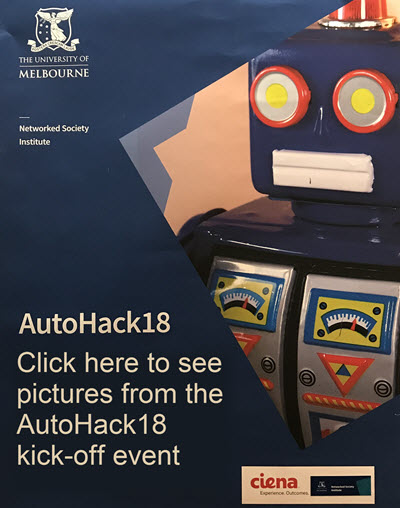AutoHack18: Unleashing the Power of Open Platforms through Creativity and Innovation
When Robert Kahn and Vinton Cerf developed Transmission Control Protocol and Internet Protocol, or TCP/IP, a communications model for standards for how data could be transmitted between multiple networks in the 1970s, nobody could have envisioned today’s connected world that it enabled. Even Sir Tim Berners-Lee (with all due respect) would not have guessed the adoption and innovation that was unleashed with his invention of the World Wide Web in 1989.
More “recently” in the 1990s, Linux was released by a University of Helsinki graduate student as an open platform, and today, it powers mission critical workloads for many governments and enterprises globally. Much of the highly anticipated Internet of Things ecosystem that Gartner forecasts to connect 20.4 billion things by 2020 is likely to be supported on Linux systems or derivatives of that.
The recurring theme running across these developments is that open platforms have the power to enable the creativity and innovation that can lead to developments that change the world.
AutoHack18 is a unique extended-form hackathon in which University of Melbourne students are invited to participate and create innovative automation solutions using the Blue Planet software suite.
Blue Planet – An Open Platform
Blue Planet is an open, intelligent automation platform that lets service providers use deep knowledge about the network to power adaptive optimization of their services and operations. It facilitates the evolution toward more efficient, modernized network operations and software-defined programmability to accelerate the delivery of on-demand services, reduce costs, and enable a path to increased network autonomy.
Blue Planet is built around the concept of container-based micro-services and allows for dev-ops programmability. It supports open APIs which transform the network into a programmable, easy-to-use resource. APIs are the keys that unlock innovation for operators who are now free to create new services on their platforms and differentiate from competition. This cuts them loose from constraints of proprietary systems that will have them depend on the vendor to implement any changes at a speed that is unacceptable in today’s on-demand economy.
Interdisciplinary teams will create applications that leverage the potential of automation to deliver positive social impact, and be judged for their innovation, benefit to society, commercial and practical viability.
An Open Platform for Social Good?
 To unleash the creativity and innovation that can be built upon Blue Planet, we are thrilled to be involved in AutoHack18 in collaboration with University of Melbourne's Networked Society Institute (NSI) and nbn. AutoHack18, which has begun and will run through 1 February, is a unique extended-form hackathon in which University of Melbourne students are invited to participate and create innovative automation solutions using the Blue Planet software suite.
To unleash the creativity and innovation that can be built upon Blue Planet, we are thrilled to be involved in AutoHack18 in collaboration with University of Melbourne's Networked Society Institute (NSI) and nbn. AutoHack18, which has begun and will run through 1 February, is a unique extended-form hackathon in which University of Melbourne students are invited to participate and create innovative automation solutions using the Blue Planet software suite.
Interdisciplinary teams will create applications that leverage the potential of automation to deliver positive social impact, and be judged for their innovation, benefit to society, commercial and practical viability. Teams will demonstrate the application to a panel of experts on 1 February 2018. The winning team will have demonstrated the most innovative application that showcases its positive social impact while simultaneously its commercial potential. Prizes will be awarded to the winning teams, with the top award being a five-day trip to Blue Planet’s headquarters in California for three people courtesy of Ciena.
We are very excited to work with NSI, nbn and the extremely creative, smart and enthusiastic students of Melbourne University on AutoHack18. History has shown us repeatedly that many of the best ideas come from students while they were in college. And we have seen how open platforms have the potential to lead to disruptive applications that change the world. Adding to these an emphasis on benefit to society as a judging criteria, I do not know where this might lead to. But if past experience is anything to go by, it might be something nobody could have ever imagined.

